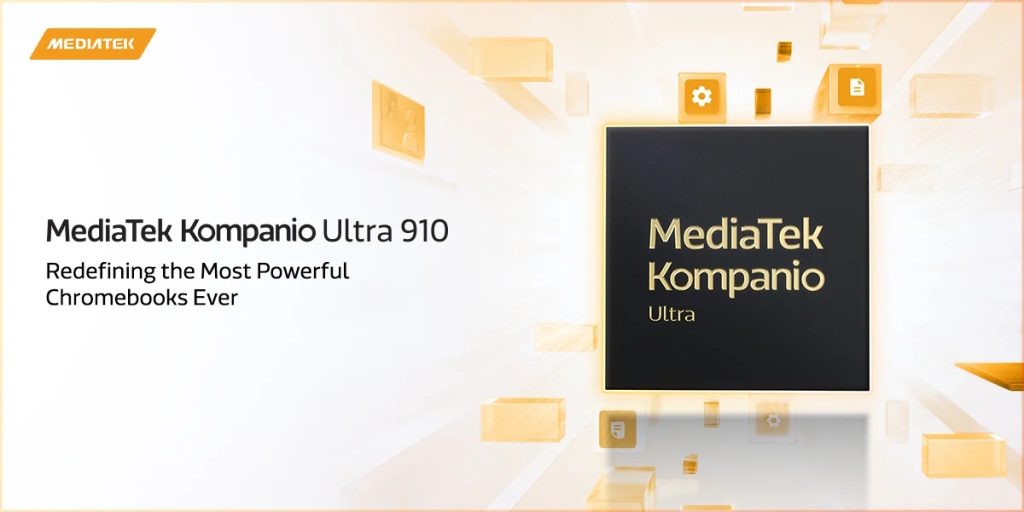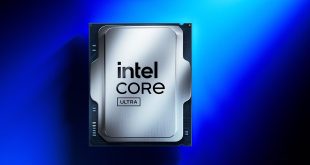MediaTek has unveiled its latest processor, the Kompanio Ultra 910, designed to elevate Chromebook performance. This new chipset emphasises AI capabilities, enhanced power efficiency, and high-speed connectivity, incorporating advanced computing technologies to drive productivity, creativity, and multimedia experiences.
Built on TSMC's 2nd-generation 3nm process, the MediaTek Kompanio Ultra 910 processor aims to deliver exceptional power efficiency, enabling Chromebooks to achieve all-day battery life while providing a significant performance boost. The CPU architecture features an eight-core configuration, comprising a high-performance Arm Cortex-X925 core clocked at up to 3.62 GHz, three Cortex-X4 cores, and four Cortex-A720 cores. This core combination is coupled with 12 MB of L3 cache and 10 MB of system-level cache (SLC).

The 11-core Immortalis-G925 MC11 GPU handles graphics processing, including ray tracing support, enhancing gaming and graphics-intensive applications. The Kompanio Ultra 910 also integrates LPDDR5X RAM (8533 Mbps) to support its processing power. Early benchmark results indicate strong performance, with a Geekbench 6 single-core score of 2600 and a multi-core score of 8000.
The Kompanio Ultra 910 uses an 8th-generation NPU, significantly boosting on-device AI performance. This enables real-time AI image and video generation and achieves up to 50 TOPS AI performance. AI acceleration also improves overall power efficiency by offloading tasks from the CPU and GPU.
The Kompanio Ultra 910 also features Bluetooth 6.0 (dual engine) and Wi-Fi 7, which can support speeds up to 7.3 Gbps. Moreover, this SoC can simultaneously drive up to three 4K displays: one integrated and two external. Lastly, it supports 4K 10-bit video decoding and encoding in HEVC, AVC, VP9, and AV1 formats.
Discuss on our Facebook page, HERE.
KitGuru says: Although it looks like a capable SoC in single-core and AI workloads, its multi-core score doesn't come near what many expect from a proper, high-end laptop CPU. However, it should be more than enough given what most Chromebook users do in their systems.
 KitGuru KitGuru.net – Tech News | Hardware News | Hardware Reviews | IOS | Mobile | Gaming | Graphics Cards
KitGuru KitGuru.net – Tech News | Hardware News | Hardware Reviews | IOS | Mobile | Gaming | Graphics Cards


